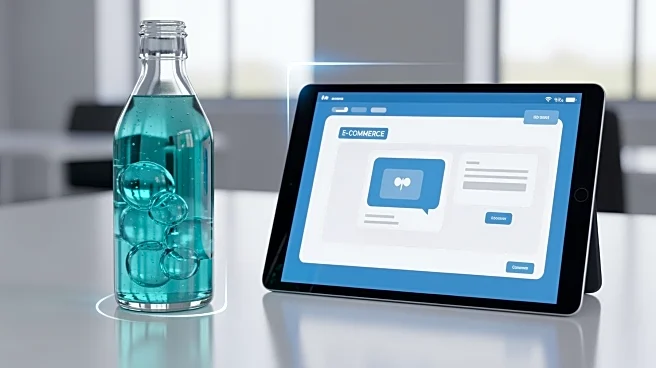What's Happening?
The beverage industry is increasingly turning to e-commerce as a vital component of business strategy, with platforms like Shopify, Squarespace, and WooCommerce facilitating online store launches. Dave McEvoy, CEO of DMAC Media, highlights the surge in online shopping,
noting that over a third of consumers shop online weekly, with digital purchases expected to account for over 20% of all transactions by 2025. For beverage businesses, e-commerce offers unique advantages such as testing new products, launching seasonal packs, and maintaining brand personality while competing with global distributors. However, integrating e-commerce platforms with other business systems like POS, inventory management, and accounting tools presents challenges. Successful integration requires technical expertise to ensure seamless data transfer and secure handling of sensitive customer information.
Why It's Important?
E-commerce integration is crucial for beverage brands seeking to expand their online presence and improve operational efficiency. By automating processes and reducing manual work, businesses can save significant time and resources, allowing them to focus on brand building and customer satisfaction. Integration also enhances the customer experience by ensuring accurate stock levels and timely order processing. As consumer preferences shift towards supporting independent brands online, a robust e-commerce strategy becomes essential for competing in the digital marketplace. Moreover, prioritizing security in integrations builds trust with customers, safeguarding sensitive data and maintaining brand reputation.
What's Next?
Beverage companies are likely to continue investing in e-commerce integration to capitalize on the growing online shopping trend. As integration becomes more complex, businesses may seek partnerships with tech experts to develop customized solutions that align with their specific needs. Additionally, ongoing testing and validation of integrations will be necessary to ensure data accuracy and system reliability. Companies may also explore new technologies and platforms to further enhance their e-commerce capabilities, staying ahead of industry trends and consumer demands.
Beyond the Headlines
The shift towards e-commerce in the beverage industry reflects broader changes in consumer behavior and technological advancements. As localism gains traction, consumers increasingly prefer to support independent brands, driving demand for personalized and unique products. This trend may lead to a more diverse and competitive market landscape, with smaller brands gaining visibility and market share. Furthermore, the emphasis on security in e-commerce integrations highlights the growing importance of data protection and privacy in the digital age, influencing industry standards and practices.















